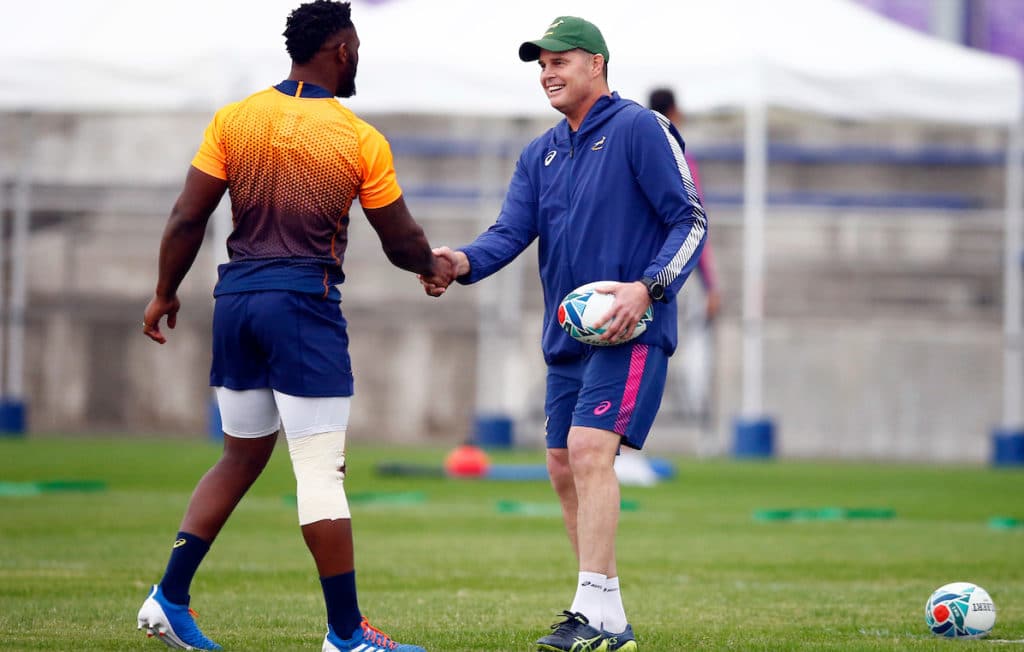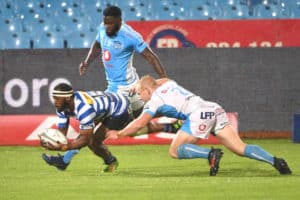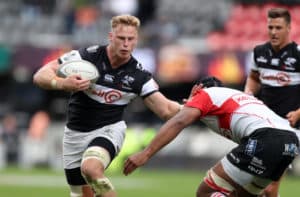The Springboks look set to reap the benefits of a long-term conditioning plan as well as a smart player management approach in the upcoming World Cup final, writes Jon Cardinelli in Yokohama.
It’s tempting to say that, in a sense, the Boks have already won.
Rassie Erasmus has turned this team around over the past two years. The Boks have ended a nine-year losing streak in New Zealand as well as a 10-year title drought. They recently qualified for the World Cup final for the first time since 2007.
On the other hand, the coaches and players have gone out of their way to make the point that the job is far from done. Indeed, the manner in which Erasmus has selected his team at this tournament suggests that the group has been preparing to peak in the final for some time.
WATCH: Scenes as Springboks win semi-final
The Bok team that travelled to the 2015 World Cup was not so well prepared or conditioned. Those were the days where the franchises and the national management team didn’t work together to ensure that players were suitably conditioned for Test rugby.
When Heyneke Meyer held fitness tests ahead of the global tournament, only three out 31 players passed. Several frontline players travelled to England with injuries and missed key games as a result.
As a veteran of the South African system, Erasmus is well aware of its pitfalls and limitations. When he came to power as director of rugby in late 2017, he moved to address the nationwide problem of player conditioning with the long-term aim of taking the fittest possible squad to the World Cup.
WATCH: This means the world to us – Siya
Appointing Aled Walters as his de facto conditioning coach has proved a master stroke. The former Munster man has pushed the Boks beyond the perceived limits of performance and endurance. A crack medical team has also played its part in managing and rehabilitating injuries to ensure that the Boks are seldom without their best combinations on the park.
Second-stringers Trevor Nyakane and Jesse Kriel were ruled out earlier in this tournament, while star wing Cheslin Kolbe has been battling an ankle injury since the pool clash with Italy. It’s testimony to the quality of the management, however, that every one of the first-choice players should be available to start in the World Cup final.
Erasmus should take the biggest bow, though. His bold plan to include 10 forwards in his match 23 has allowed the Boks’ to maintain their gladiatorial forward effort in the big games.
It’s a risky rather than conservative move. Erasmus has explained at length, however, that the risks of favouring a 6-2 split on the bench are not as great as the potential rewards.
Backing 10 forwards instead of nine – and resting key players across the Rugby Championship and in the World Cup pool games against Namibia and Canada – should also ensure that the Bok pack is relatively fresh and ready for a final showdown with England.
LEWIS COLUMN: Boks are already winners
Duane Vermeulen and Lood de Jager said on Sunday that the battle would be won and lost at the gainline. The Boks are bracing themselves for a brutal contest at the breakdown and collisions. Erasmus and Co will be looking at how they are going to maintain that effort for 80 or – if the game goes to extra time – 100 minutes.
The Boks may be at a disadvantage in that they have only six days to prepare for the decider. How World Rugby couldn’t forsee this problem when they were finalising the schedule two years ago is anyone’s guess. This is pro sport, and neither team should ever be the victim of the schedule ahead of the championship game.
Fortunately, as a veteran of the often stifling South African system, Erasmus knows how to turn lemons into lemonade.
The Boks appear to be conditioned and prepared for the final and most demanding lap of this race. That in itself must be viewed as a sign of progress.
Photo: Steve Haag Sports via Hollywoodbets






